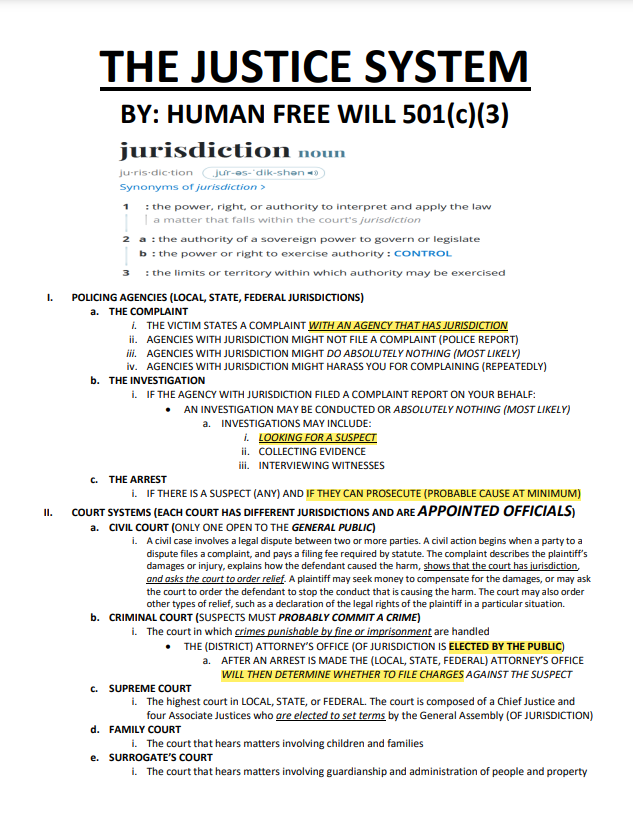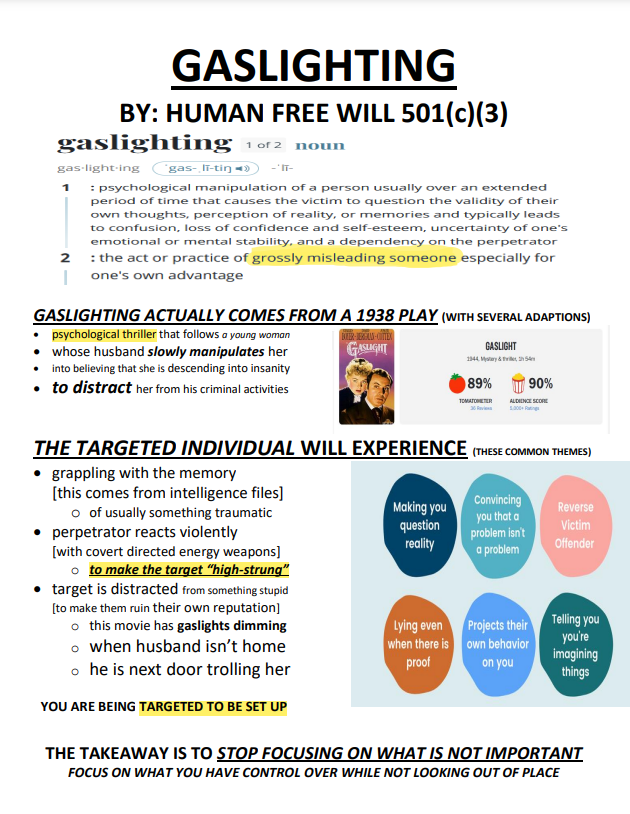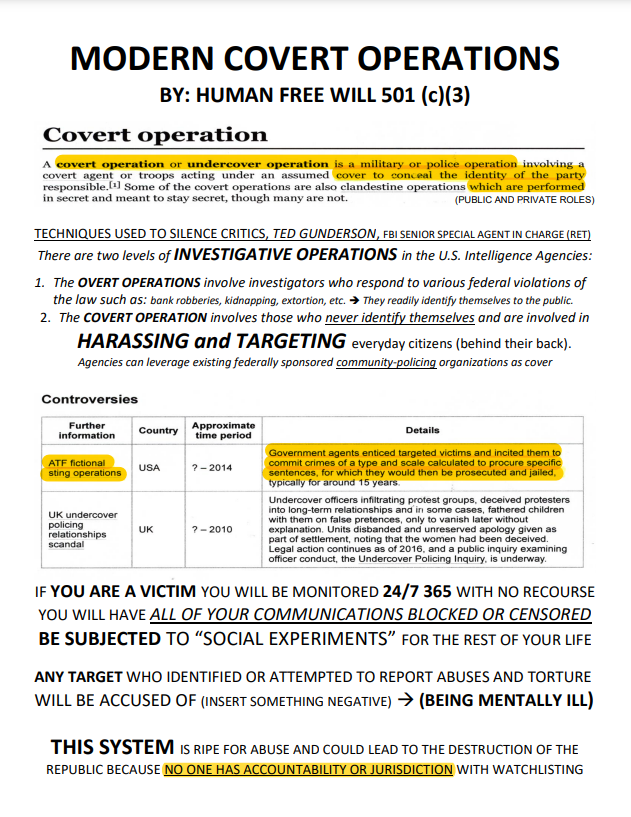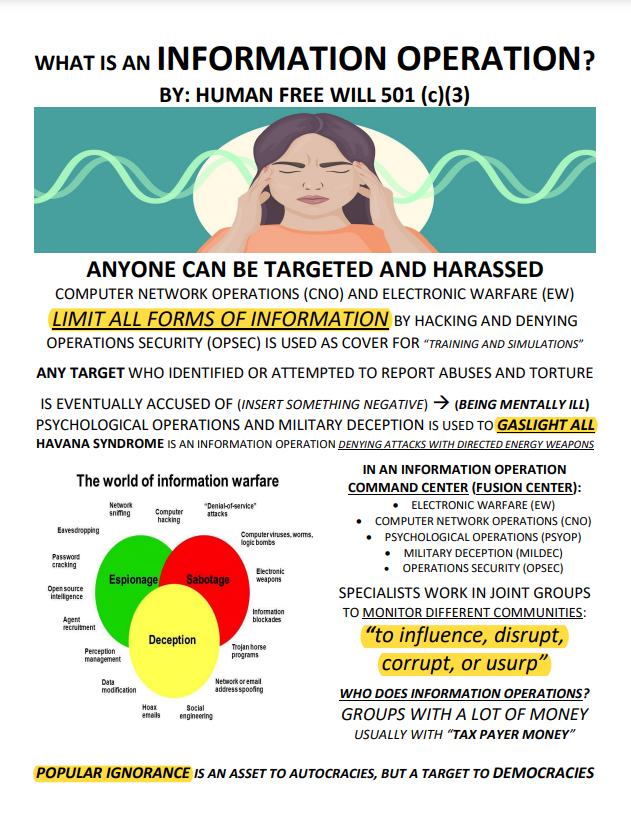GUIDES
RESOURCES WE GATHERED
INTELLIGENCE SERVICES: ROLES AND RESPONSIBILITIES
INTELLIGENCE, SURVEILLANCE, AND RECONNAISSANCE CYCLE DIAGRAM
INTELLIGENCE, SURVEILLANCE, AND RECONNAISSANCE BUSINESS PRODUCTS
NSA MISSION AND DOMESTIC INTELLIGENCE AND SURVEILLANCE NETWORK
CIA SPYING HERE AT HOME USING THE FBI
EXTRAORDINARY RENDITION FACT SHEET - ACLU
NCTC INFORMATION COLLECTION (WATCHLISTING) FACT SHEET - ACLU
DOD DIRECTED ENERGY WEAPONS: BACKGROUND AND ISSUES FOR CONGRESS
FBI DESCRIBING THE TARGETED INDIVIDUAL PROGRAM
TESTIMONIAL OF A GANG STALKER - CARL CLARK
TESTIMONIES OF TARGETED INDIVIDUALS
THE REASON FOR NATIONAL SECURITY AND COVERT OPERATIONS
NATIONAL SECURITY AND COVERT OPERATIONS TODAY
covertharassmentconference2015.com
crsreports.congress.gov
technologyreview.com
theintercept.com
muckrock.com
REDRESS FOR COVERT ACTION
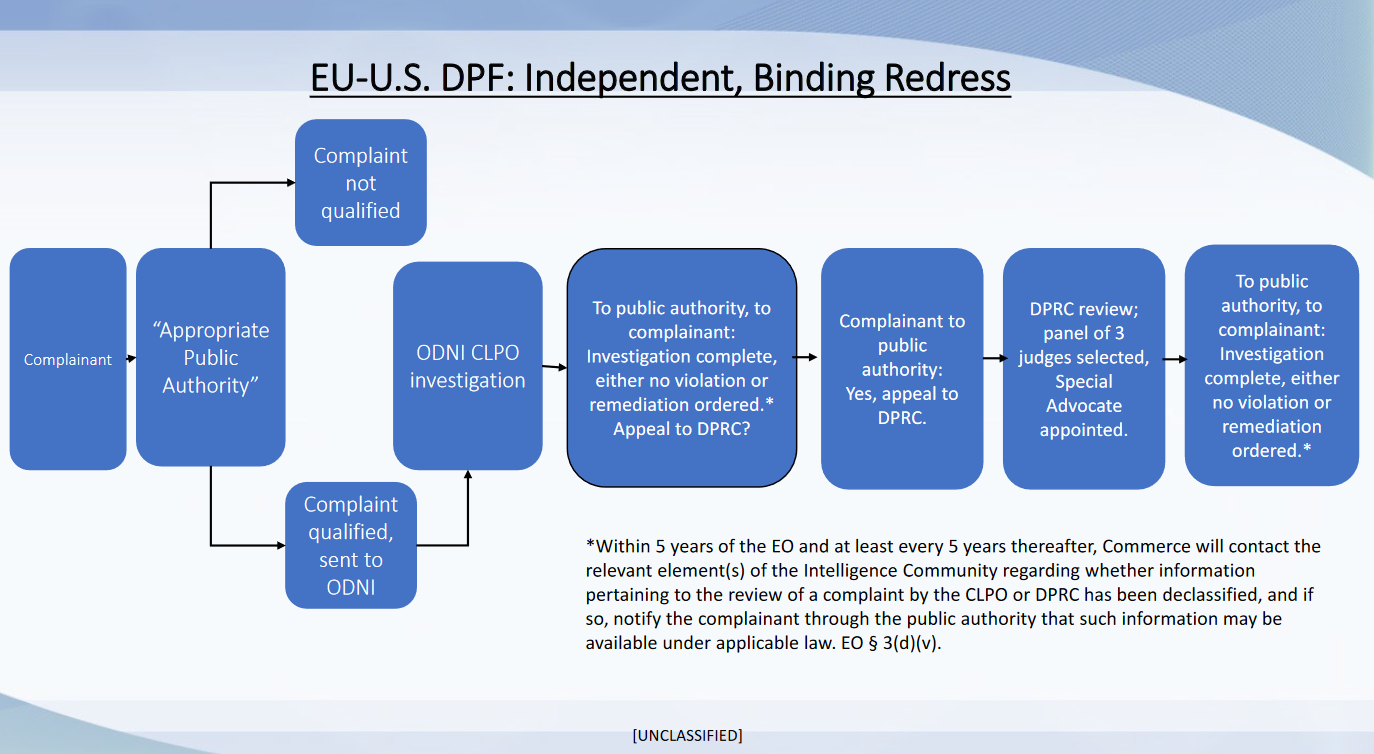 https://iapp.org/resources/article/web-conference-eu-u-s-data-privacy-framework-new-independent-binding-redress-mechanism
https://iapp.org/resources/article/web-conference-eu-u-s-data-privacy-framework-new-independent-binding-redress-mechanism
"APPROPRIATE PUBLIC AUTHORITY" STILL ELUDES US
SURVEILLANCE KEEPS YOU IN DETENTION FROM INFORMATION
CONSTANTLY UNDER ELECTRONIC SURVEILLANCE GETTING HACKED
THERE IS NO WAY TO ASK FOR HELP IN PERSON FROM ANY AGENCY
EXTRAORDINARY RENDITION HAPPENS COVERTLY OR WITH INTERROGATIONS
ALL FORMS OF COMMUNICATIONS CAN GET BLOCKED OR ALTERED
- The government does not confirm whether individuals who suspect placement on a watchlist are, in fact, watchlisted
- The procedure for challenging erroneous inclusion on watchlists is opaque, one-sided, and non-participatory
- Individuals can submit complaints only if they come to suspect, through encounters with officers that they are on watchlists
- Individuals cannot review or refute any information underlying their placement on the watchlist
- Individuals are not granted a hearing at which they could establish their credibility before a neutral decision maker
- Individuals never receive a confirmation that erroneous information has been removed from watchlist-related files
- non-silent hit subjects are required to be referred to the Office of the General Counsel and the Inspection Division of the FBI
- as a matter for Intelligence Oversight Board (IOB) review when the subject remains in the database after the investigation is closed
- silent hits, on the other hand, “are not considered potential IOBs” and are not referred for such review and are kept secret
- An individual could try to file an administrative appeal through the screening agency where the agency makes such appeals available
- It is unclear if anyone has appealed a redress disposition successfully
The only exception to this policy resulted from litigation challenging the No Fly List redress procedure, which a federal court found unconstitutional in June 2014. See Latif v. Holder, 28 F. Supp. 3d 1134 (D. Or. 2014). Under the government's revised policy, instituted in April 2015, a U.S. person who purchases a ticket, is denied boarding at the airport, subsequently applies for redress through the Department of Homeland Security's Traveler Redress Inquiry Program, and is on the No Fly List after a redress review, will receive a letter disclosing that status on the No Fly List. If the individual opts to receive and/or submit further information, the government will provide a second response that includes an unclassified summary of reasons (of varying specificity and length) for the individual's inclusion on the No Fly List. See Notice Regarding Revisions to DHS TRIP Procedures, Latif v. Holder, No. 10- 750-BR, ECF No. 197 (D. Or. Apr. 13, 2015). The plaintiffs in Latif have also challenged the revised redress process as inadequate under the Due Process Clause.
The system poses a serious threat to constitutional rights and civil liberties, as watchlisted individuals may be subject to unwarranted monitoring and surveillance, prolonged detention and questioning, and the stigmatization that comes with such law enforcement scrutiny. In addition, watchlisted individuals face the risk of mistaken dissemination of terrorist watchlist information to private third parties like employers and insurance companies. They may also face discrimination in immigration and naturalization proceedings. Despite the threat to these individuals' due process and privacy rights, they have little recourse to challenge the watchlisting procedures.
THE BLAVER CASE AND THE TWENTY YEAR COVER UP
IN 1952 HAROLD BLAVER WAS 42 YEARS OLD
- and a ranking professional tennis player
- he taught at the Hudson River Club in Manhatten
- then suddenly he was stricken with a "midlife crisis"
- eventually he checked himself into Bellevue Hospital in New York City
- they transferred him to the Psychiatric Institute (PI) a New York State facility
- it is operated and staffed by Columbia University psychiatrists
- (they had a secret contract with the Army Chemical Corps)
- (the Army had an interest in the effects of hallucinogens)
- December 5, 1951 HAROLD was fully admitted to the Psychiatric Institute (PI)
- HAROLD was then given an "experimental drug"
- December 11, 1951 - January 8, 1952 HAROLD received "daily treatment" while observed
- January 8, 1952 receiving "treatment" while observed HAROLD was pronounced dead at 12:15pm
THE ARMY INTELLIGENCE DIVISION secretly wrote a check to New York State to pay the family
IN 1978 THE JUSTICE DEPARTMENT awarded the ESTATE $750,000 along with other MKULTRA VICTIMS
YOU HAVE TO ASSUME THEY HAVE GOTTEN BETTER AT COVERING THINGS UP
we are currently looking into cell site simulator cases as examples of how the government responds to the use of newer technology "testing"
we can not find the original case to reference where the targeted individual figured out the technology and won his freedom out of jail
COVERT ACTION
If "leaders" are only good at the ISR Cycle and Information Operations to cover it up, what happens to society as a whole? The answer today is to do more ISR Cycle and Information Operations so NO ONE knows.
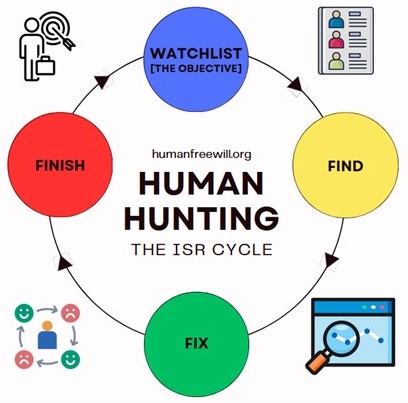
Subscribe to the Newsletter
We are approaching an inflection point in Human History. Get the latest insights. From business to the quantum details. We try to explain the "effects". Hopefully the truth gets communicated.
